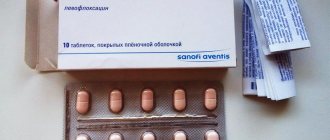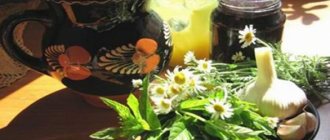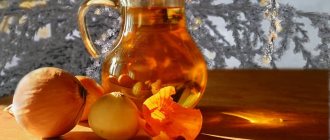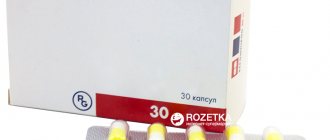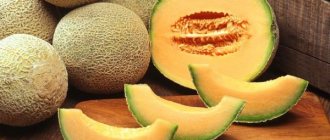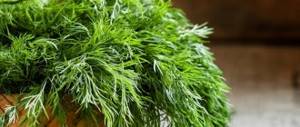Composition and beneficial properties
The composition of propolis depends on the habitat of the bees that produce it. Includes resin from tree buds (black poplar, warty birch, alder) and pollen processed by enzymes of the bee salivary glands. The composition of the bond is also influenced by the breed of bees, on which enzyme activity depends . Propolis produced by wild bees is considered to be of the highest quality . They have powerful immunity, increased endurance and frost resistance.
Main components:
- Saturated fatty acids (from bee glands);
- Acids (ferulic, benzoic, cinnamic and others) with antibacterial effects;
- Flavonoids;
- Enzymes;
- Pinocembrin and caffeic acid ester (antifungal agents);
- Essential amino acids for humans;
- Esters that inhibit the development of pathogenic microorganisms;
- Plant resins;
- Tannins;
- Vitamins (predominantly A, C, E, P, H, group B);
- Almost a complete set of microelements necessary for humans.
In total, bee resin contains more than 200 compounds that are in absolute balance with each other.
Read more about the composition, appearance and rules for choosing propolis
Basic properties:
- Stimulation of blood flow by reducing blood clotting and relieving vascular spasms.
- Destruction of pathogens.
- Stimulation of immunity.
- Inhibition of tumor growth.
- Tissue regeneration.
- Reducing cholesterol levels.
- Pain relief (almost like novocaine).
- Regulation of hormone levels.
Propolis removes toxins, protects cells from damage and premature aging, and promotes more efficient absorption of medications.
Indications for use for prostatitis
Propolis has pronounced bactericidal (kills bacteria) and bacteriostatic (stops the growth of pathogens) properties . Products based on it cope with 39 different types of bacteria, which include the causative agents of prostatitis: Trichomonas, Staphylococcus, Streptococcus, Klebsiella, Proteus, as well as fungi. At the same time, beneficial microflora does not suffer, as when taking antibiotics .
Products based on bee resin are prescribed for acute and chronic prostatitis (including congestive) , as well as for restoring the gland after exacerbations. In some cases, propolis helps with chronic inflammation of an unknown nature (abacterial prostatitis), destroying pathogens that are inaccessible to antibiotics (bacteria are not able to develop resistance to infection).
Propolis is combined with antibacterial drugs prescribed for prostatitis, and even enhances their effect. These funds include the following:
- Gentamicin;
- Ceftriaxone;
- Tetracycline;
- Streptomycin.
Bee resin neutralizes the negative consequences of taking antibiotics, such as dysbiosis and immune suppression, while simultaneously restoring prostate tissue damaged by inflammation. The bond is especially useful for men suffering from high blood pressure, prostate adenoma, potency disorders, and diabetes.
Do you trust bee products?
For men
Regarding the benefits of propolis for men, it can be said that on the basis of this product, remedies are often prepared for the treatment of male prostatitis or hemorrhoids.
It is also recommended for use as a preventive measure for the development of prostate problems and to normalize potency. And recently, scientists have recommended that men use “bee glue” in order to improve blood microcirculation and improve the elasticity of blood vessels, because the risk of developing heart disease in men today is very high, but the prevention of heart disease can eliminate it. And the benefits of propolis for the liver are specifically mentioned, which is often damaged by the male diet and rhythm of life (chronic stress).
Where to buy and how to choose
You can buy uza in pharmacies (in briquettes, balls, sticks or in the form of dry crumbs), at fairs or order through beekeepers' websites. Several types of products based on it are officially registered in the Russian Federation:
- Tincture.
- Aerosol "Proposol".
- Ointments “Propotium” and “Homeopathic Propolis”.
- Rectal suppositories "Propolis DN" and "Prostopin".
On sale you can find propolis in brown-green, brown and almost black colors. The shade of the resin depends on the type of plants from which it was collected, but it must be uniform - without streaks, impurities, or inclusions. Beekeepers may have debris from the hive in their bag. Not everyone cleans it by melting it. The fewer black veins on the surface or cut, the better . Fresh propolis of a light shade, a piece can be squeezed with your fingers. The product of yellow-green and greenish-brown color is considered to be of the highest quality .
When purchasing, you should pay attention to the smell . High-quality propolis smells like incense and wax. If possible, it is better to ask the seller for a small piece for tasting. When chewed, the resin should create a feeling of warmth in the mouth and adhere to the teeth. After a few minutes, the tongue will become slightly numb, and a slight burning sensation will be felt in it and the tonsils. After half an hour of chewing, the propolis will break up into lumps and become bitter.
You can check the quality of the resin using a container of water by immersing a small piece in it. If it floats on the surface, then the wax content is too high (more than half the composition). This is a construction (entrance) propolis used by bees to repair the hive. A quality product will sink . Pollen and wax in this resin are no more than 25%. This is an antimicrobial propolis used to disinfect the hive.
Video about checking the quality of propolis
Uza can be stored for no more than 5 years . If the resin has become crumbly and does not take on a uniform consistency even at high temperatures, then it should not be used. Propolis that has become blackened or covered with a white coating is considered unusable.
Bee resin is not cheap on beekeepers' websites: 100 g will cost 500 rubles.
Recipes with propolis
Propolis does not lose its properties even after boiling for an hour, so it can be heated without hindrance. Water extracts are more effective against microbes (suitable for treating prostate inflammation), alcohol extracts are more effective against bacteria (the most active drugs are obtained with 70% alcohol) . The latter are best used after relieving acute inflammation or for chronic prostatitis to restore gland tissue and immunity.
The easiest way to consume propolis is to chew a piece the size of a match head every day . For those who do not like the bitter taste, a mixture with honey in a ratio of 1:10 is suitable. It is better to first soften the ouzou in a water bath, then mix it with honey (honey should not be heated too much). Take 10 ml three times a day for a month.
Candles
Candles (more about suppositories with propolis for prostatitis) based on propolis can be bought or made independently at home. Ingredients:
- Cocoa butter and animal fat (40 g each);
- Propolis (80 g);
- Royal jelly (5 g). It can be bought at a pharmacy;
- Perga (5 g). Sold in honey shops and on websites.
Making propolis candles based on cocoa butter
Place everything in an enamel pan, heat in a water bath until a homogeneous mass is obtained, then pour it into pre-made foil molds (8 mm in diameter and 5 cm in length). Place the molds in the refrigerator (not the freezer). Administer once a day at night for a month. In total you need 2-3 courses per year.
Alcohol and water solutions
Water infusion
The most effective is a product based on propolis and dead bees . Recipe: boil 15 g of dead meat in 0.5 liters of water for 40 minutes, leave for 2 hours, add 2 tablespoons of honey and a tablespoon of alcoholic propolis tincture.
Take a tablespoon of the product on an empty stomach 1-2 times a day for a month. The course can be continued depending on how you feel.
Alcohol tincture
Grind 10 g of propolis (pre-cool in the refrigerator), pour in 100 ml of alcohol, leave for a week in the dark. Do not put the infusion in the refrigerator . To urgently prepare a solution, the ingredients are taken in a proportion of 1 part resin to 10 parts alcohol and heated in a water bath to 40˚C. Then the mixture must be shaken for several hours. To obtain an aqueous solution, 10 ml of alcohol is diluted in 100 ml of water.
For prostatitis, take 15 drops diluted in half a glass of water, 2 times a day before meals for a month. You can also drink propolis with milk (warm).
Propolis alcohol tincture recipe
Microclysters
Microenemas for prostatitis are one of the most effective forms of drug administration. Propolis-based solution: heat a mixture of 200 g of any vegetable oil and 30 g of crushed resin. Inject 40 g into the rectum before bed for two weeks.
Propolis with herbs
Medicinal herbs enhance and complement the effect of propolis . To prepare the infusion you will need the following ingredients:
- Yarrow, calendula flowers (5 parts each).
- Field steelroot and fennel fruits (3 parts each).
- Nettle and horsetail (2 parts each).
Infusion recipe : pour two tablespoons of the mixture with two glasses of boiling water, leave in a thermos for two hours. Add a small piece of propolis to the strained infusion. Drink 3 times a day after meals.
Another infusion option: take 5 tablespoons of sage, chamomile and linden, pour 3 liters of boiling water, cool to 40˚C, then dissolve a piece of propolis the size of a fingernail (can be pre-heated).
See also: Treatment of prostatitis with apitherapy: bee sting versus pills.
Treatment of sore joints
Propolis is effectively used to prevent migraines. At the first signs of a headache, you need to drink a cup of tea with the addition of 30 drops of propolis extract and one spoon of meadow honey (see TOP 10 beneficial properties of honey). Drink this tea every hour, starting a few hours before bed. Do the same the next day, but the dose should be halved.
If the joints make themselves felt, then a tincture of propolis with alcohol will help, which should be taken orally for at least 2 weeks.
Add 20-40 drops of extract to half a cup of milk or water, drink 1 hour before meals three times a day.
Dear friends, despite the magical properties of this product, if you are allergic to it, then it is better to refuse it and use other remedies that I write about in my articles.
Contraindications
Propolis has no contraindications, except for severe allergies to bee products and individual intolerance . A negative reaction occurs only in 0.3% of cases. Asthmatics and people prone to dermatitis, eczema and other skin diseases should be especially careful when taking propolis preparations.
Allergies can manifest as itching, rash, burning, headache, and general weakness. If such symptoms occur, treatment with propolis should be stopped.
Diabetes
The mechanism of action of flavonoids on diseases caused by oxidative stress has been fully studied and confirmed by science. Propolis and royal jelly contain an insulin-like substance, as a result of which these bee products help lower blood sugar levels.
Scientists say that regular consumption of propolis helps reduce your daily insulin dose, but you should only do this under the supervision of a doctor. In 2005, it was officially proven that regular consumption of propolis reduces cholesterol (LDL), triglycerides and blood sugar levels, and also increases the level of good cholesterol (HDL).
Reviews
Peter, 34 years old: “Propolis suppositories helped to recover from acute prostatitis. The course of antibiotic treatment ended, but the discomfort still remained. Then the doctor recommended buying “Propolis DN” or “Hemo-pro”. After 2 weeks, the discomfort in the perineum disappeared completely.”
Kirill, 41 years old: “I chewed propolis for blood pressure and never expected that it would help with chronic prostatitis. I also added a course of tincture. During the year there were no exacerbations."
